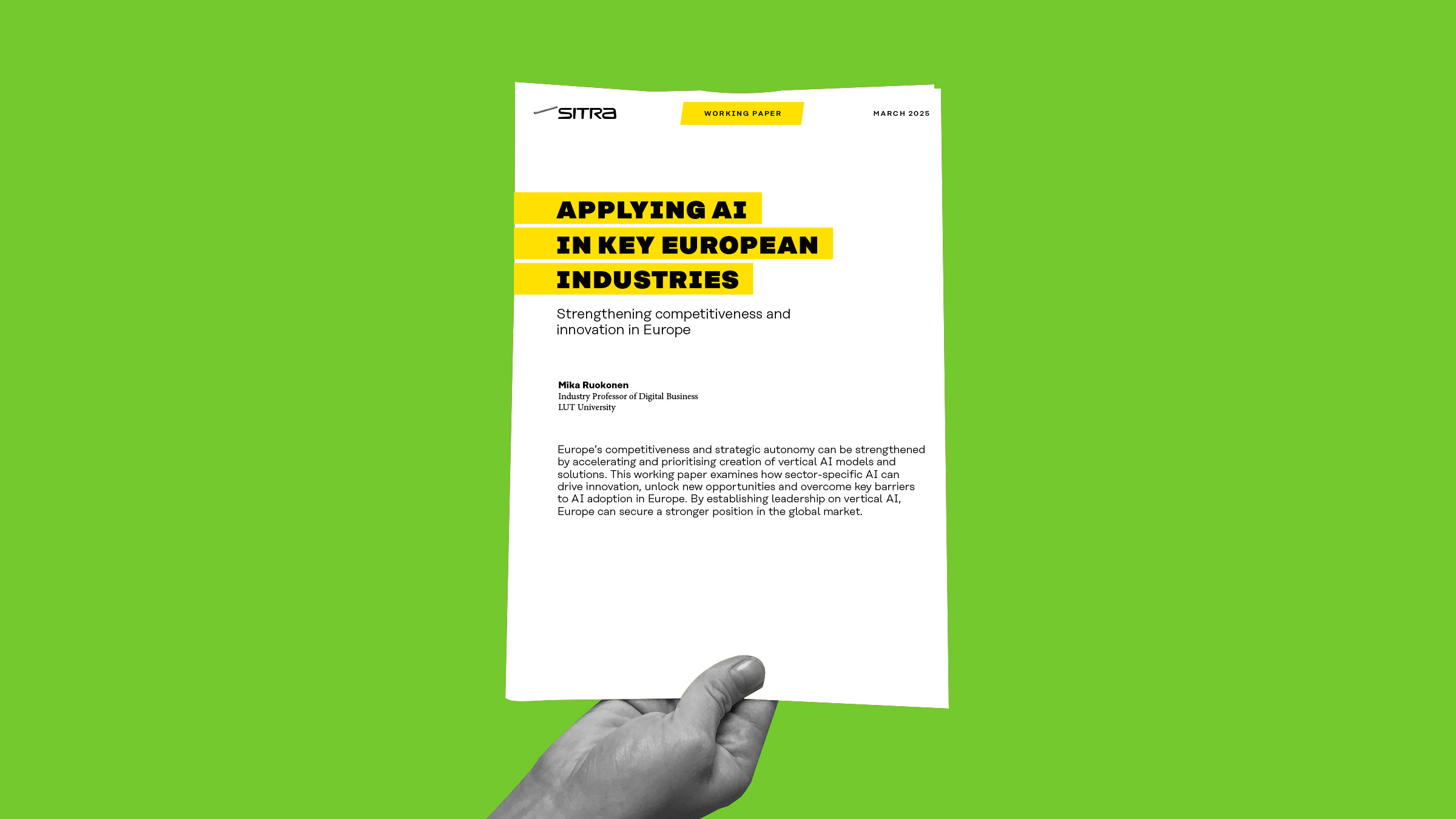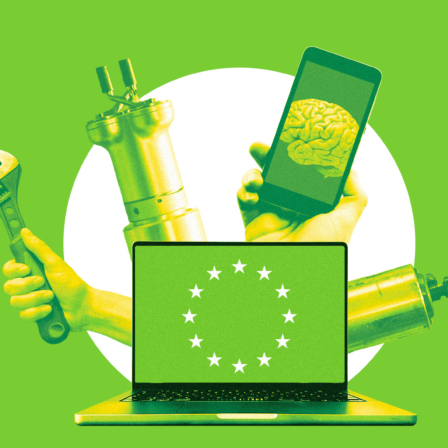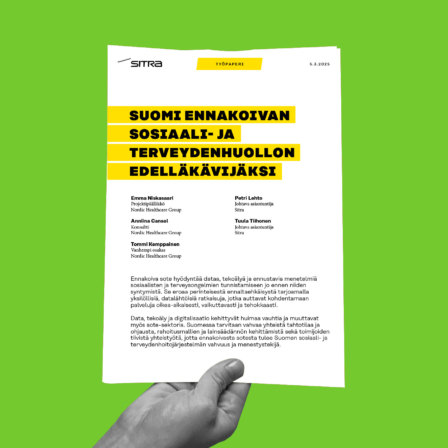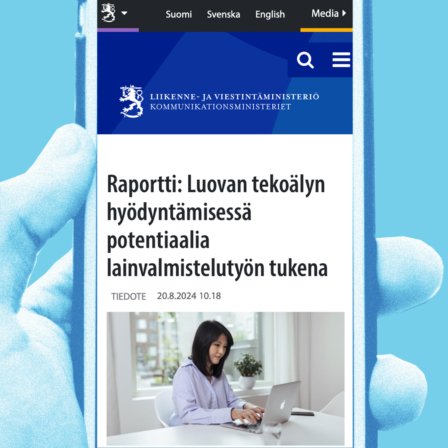The use of AI is transforming industries and societies and forcing companies to become more competitive. As the AI race in the major powers accelerates, Europe must also ensure its competitiveness, strengthen its productivity and develop AI solutions based on European values.
The international AI market is expanding rapidly. The aim of this report is to explore the potential of Europe in the field of applied AI. Applied AI refers to AI solutions tailored to different domains, such as healthcare, logistics and manufacturing, which exploit the knowledge of each specialisation and take into account the constraints of the domain’s operational environment, such as regulation. The greatest productivity gains from AI can be achieved when it is applied efficiently and in a targeted manner across different industries. Generic AI solutions such as ChatGPT can improve productivity, but because they are widely available, their use is not able to provide companies with a sustainable competitive advantage.
Europe has the potential to become a leader, especially in applied AI, if it invests in vertical AI models that can be developed for different industries and provide unique added value, as well as AI applications and agents for automating different tasks and interacting with systems. Applied AI offers opportunities in both consumer and business markets. Europe should focus on creating innovative AI applications and services for the consumer sector, which respond to new and evolving needs. For businesses, the focus should be on developing specialised AI solutions that can solve complex, sector-specific problems.
This report shows that Europe is lagging behind the US and China in AI investment and that Europe’s fragmented markets and dependence on foreign technology suppliers have slowed the adoption of AI. The current dependence on technologies developed outside Europe poses risks to Europe’s economic and strategic interests. Europe should seek to strengthen its own technological self-sufficiency. At the same time, with its skilled workforce and strong and diversified industries, Europe can seize significant opportunities in the field of applied AI solutions. However, AI investment and uptake needs to be accelerated in Europe, in both the private and public sectors. Europe needs to invest in a wide range of AI areas, including large-scale language models in all official EU languages, vertical AI models tailored to key industries and various types of AI agents. The scale of investment may vary, but a holistic approach is essential.
Europe should also pursue other measures to improve its position in the global AI cloud and develop AI and its application based on European values. The report sets out six recommendations that Europe can implement to strengthen its competitiveness, foster innovation and ensure strategic self-sufficiency in the rapidly evolving field of AI:
- Europe needs to strengthen its strategic autonomy in AI with deeper single market harmonization.
- Affordable and sustainable computing resources are fundamental in enabling the creation of AI applications.
- Ensure availability of large language models in all EU languages.
- Ensure access to high-quality industry-specific data.
- Invest in the substantial evolution of AI-related workforce skills.
- Securing adequate financing for applied AI is a strategic opportunity for the EU.



















Recommended
Have some more.